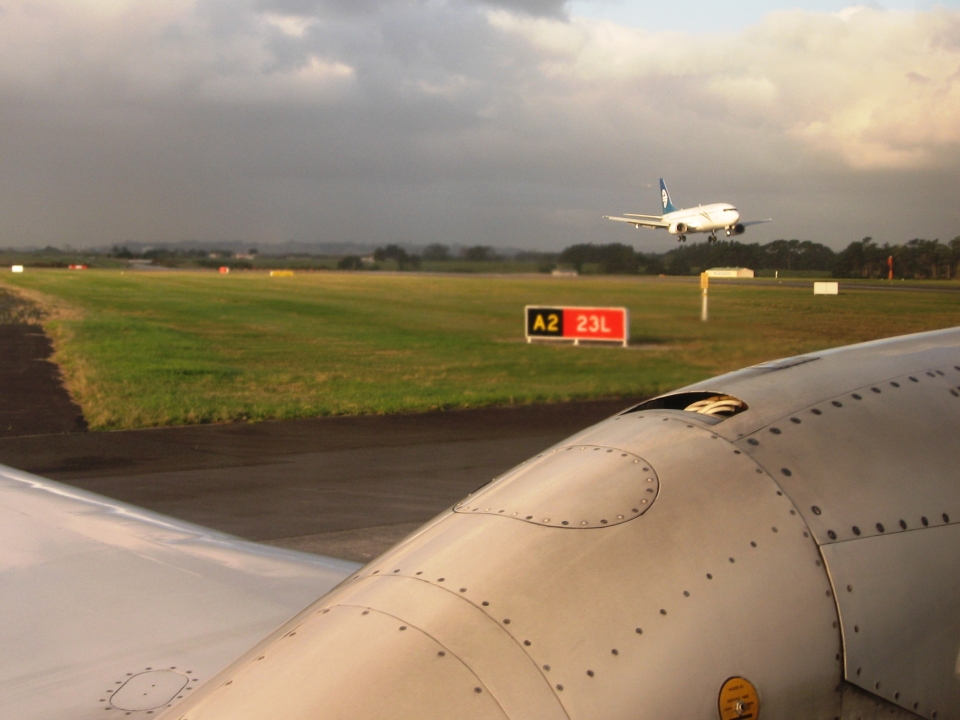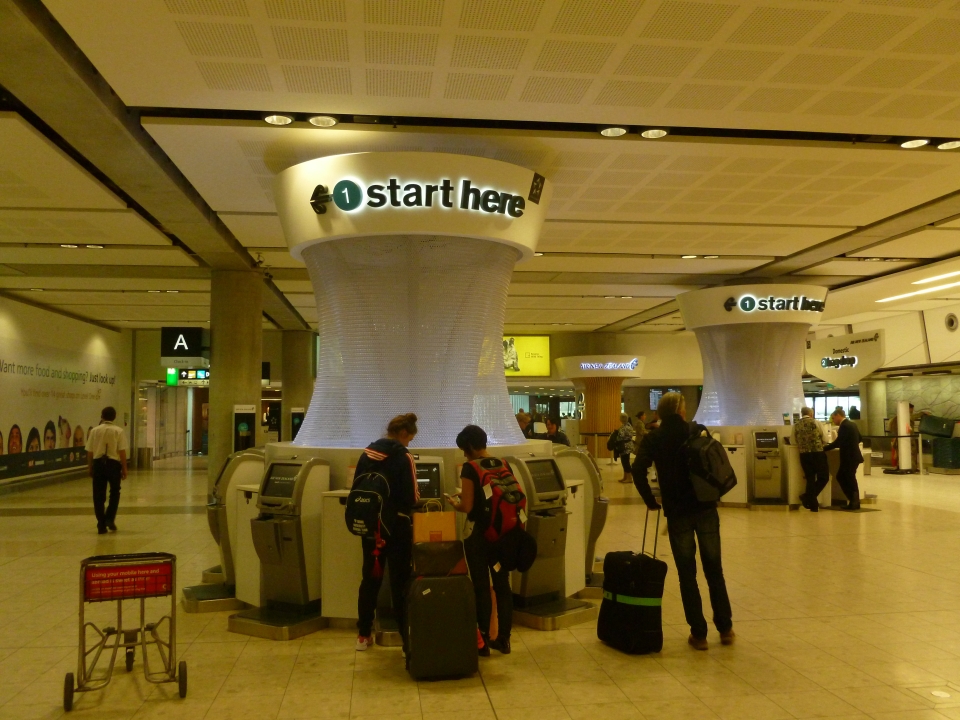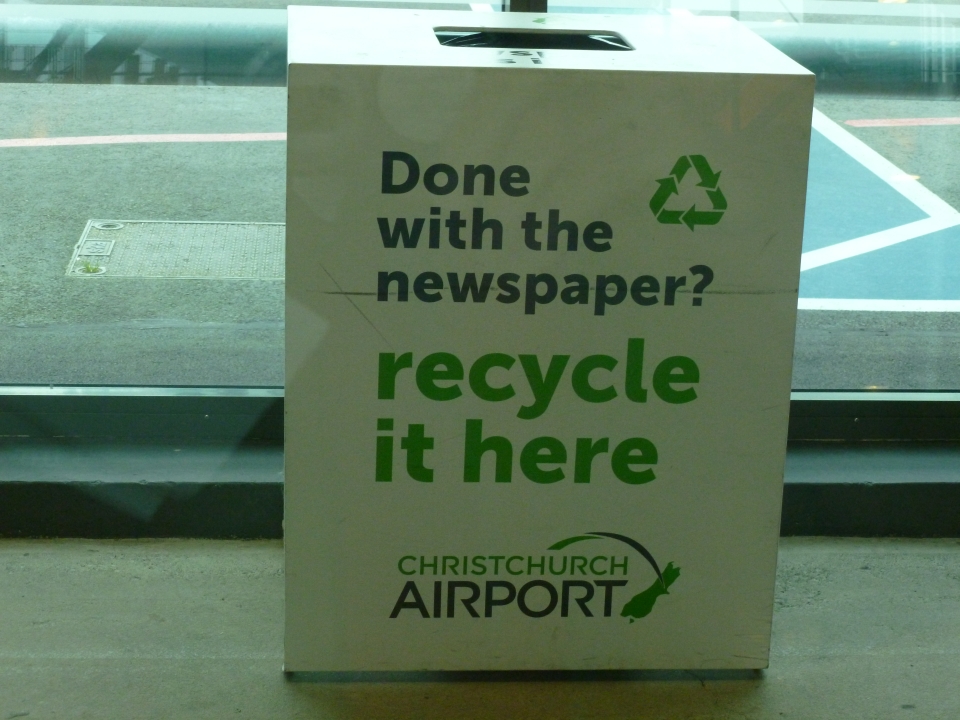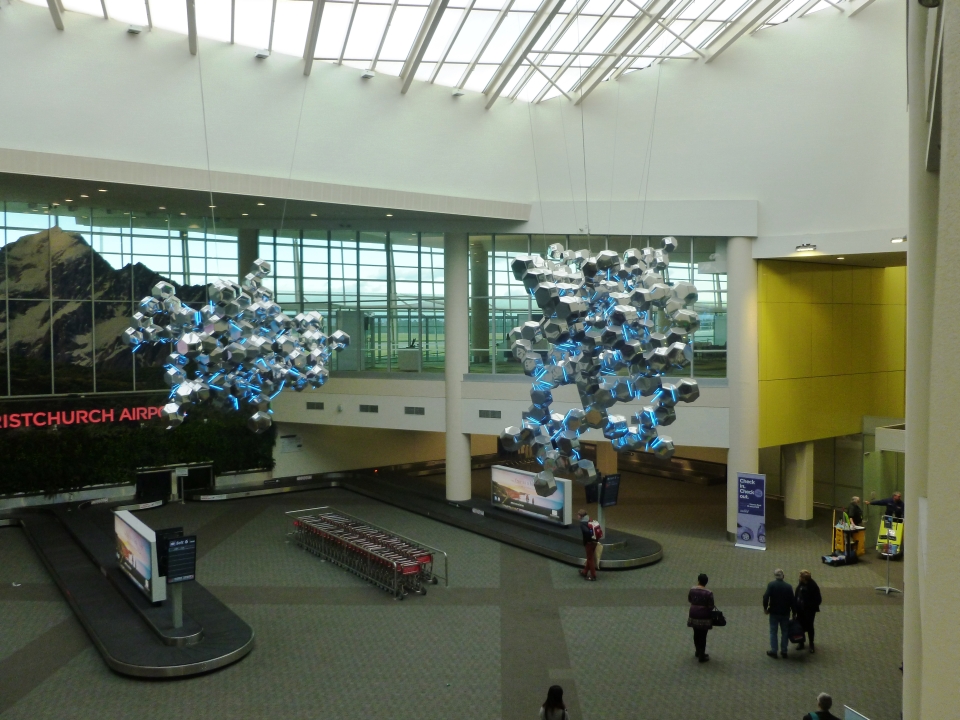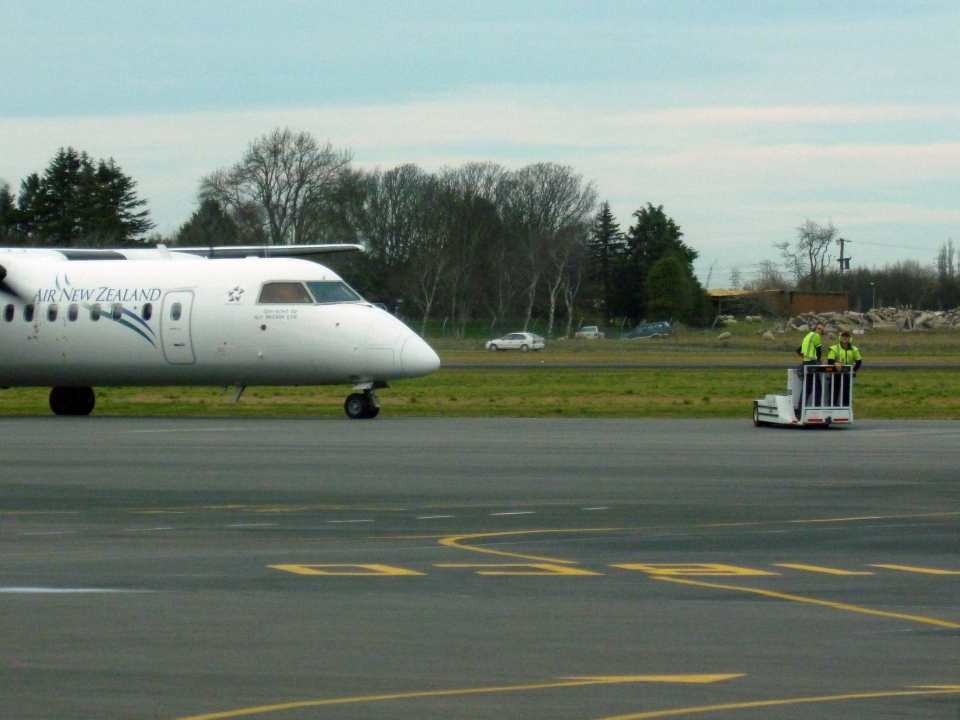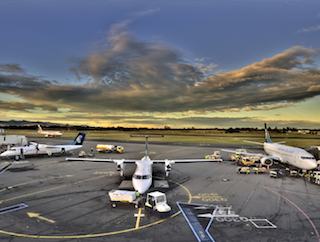Aircraft noise
Managing aircraft noise needs careful planning. This is important to reduce the effects of noise on local residents and generally be a good neighbour. CIAL also does not want a curfew which would restrict its 24/7 operations, as happens at some other airports.
How is aircraft noise managed?
- Discouraging the use of older, noisier aircraft
- Sticking to recommended flight paths and procedures
- Land use planning – using noise contours to discourage noise-sensitive development within areas affected by aircraft noise.
Water protection
The airport works to reduce its impact on groundwater quality and quantity. Groundwater provides the airport's water supply, including public drinking water and a renewable energy source for heating and cooling of the terminal.
Waste management
CIAL's approach to waste management is based on reducing, re-using, recycling, recovering and managing waste.
Paper, waste oil, cardboard, plastic, metal and glass is recycled and all green garden waste is composted.
Energy
CIAL has an energy policy aimed at responsible energy use. CIAL also buys energy efficient equipment where possible. There is even a weather station which takes into consideration temperature and wind direction when controlling air curtains!
Air
Good quality air is important for the health and enjoyment of people working or using the airport and its surrounding areas. CIAL makes sure it complies with its air discharge resource consents.
Bird management
Bird strike is a threat to all aircraft during take-off, climb, and approach and landing. Bird populations are monitored and managed by CIAL. A Wildlife Officer monitors bird activity around the airport, and takes measures to keep the bird numbers down. The 2009 famous bird strike incident will help you understand why this is so important http://edition.cnn.com/2009/US/06/08/usair.bird.strike/.

